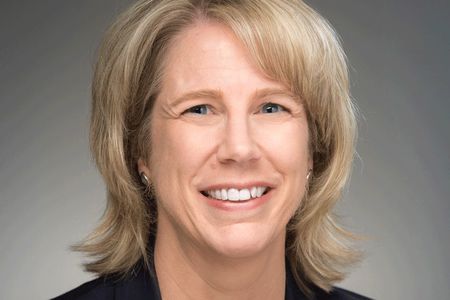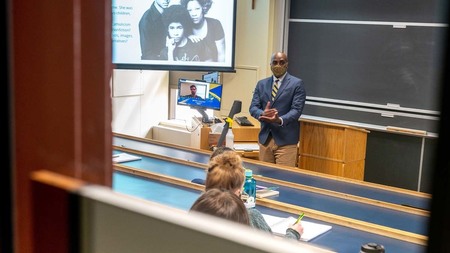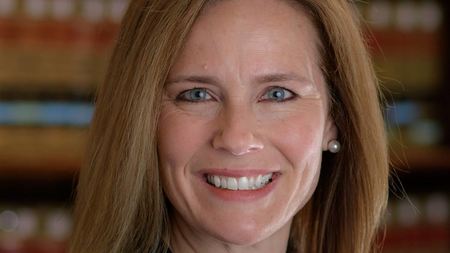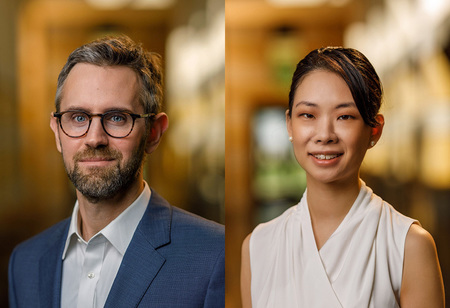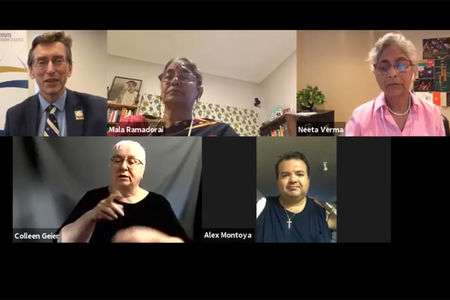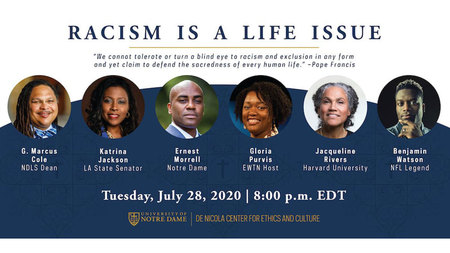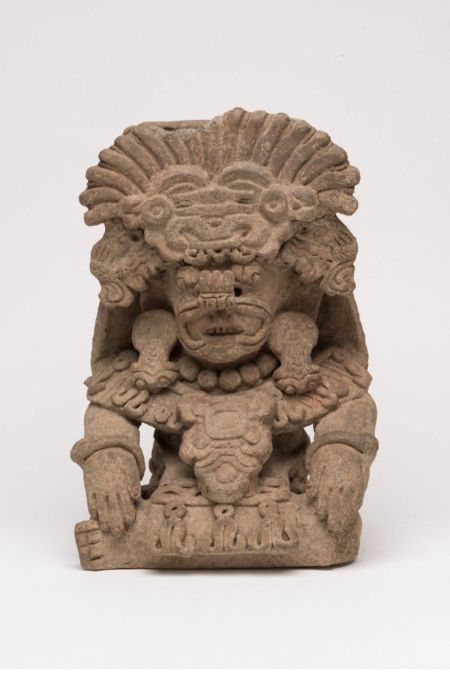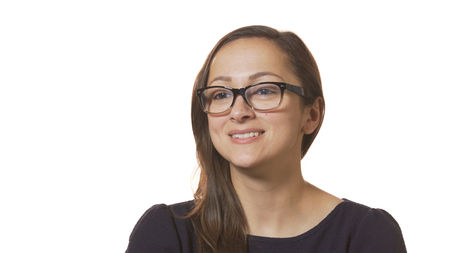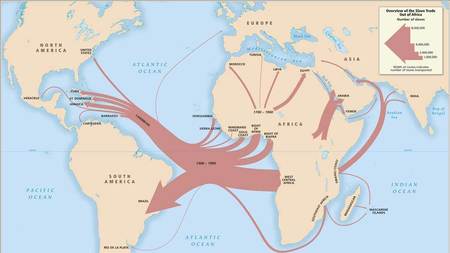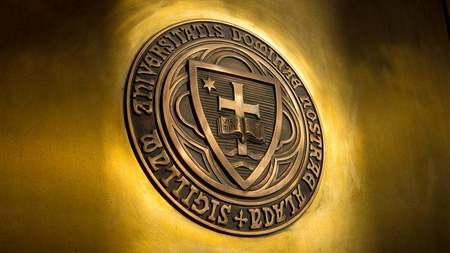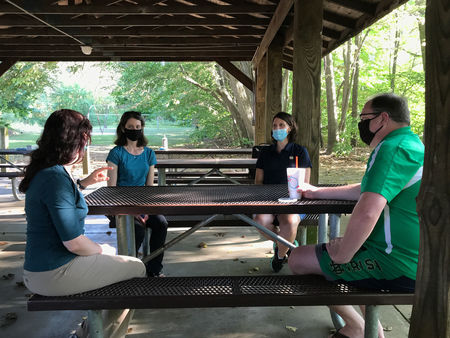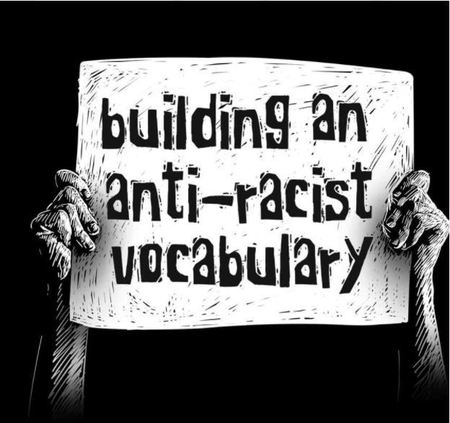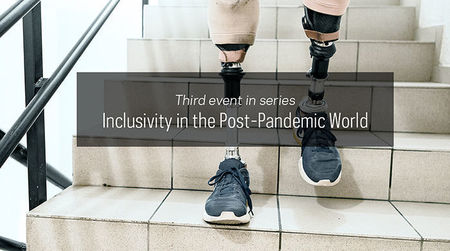Faculty Stories
Faculty at Notre Dame come from communities and cultures all over the world. They conduct research and scholarship on topics and issues that span numerous academic disciplines. They share with students not just their areas of expertise but also their questions and concerns about the enduring issues and latest developments that shape our times.
But their role in broadening and sharpening the lenses through which we understand ourselves and the world around us extend well beyond individual research projects, classroom lectures, course syllabi, or a list of academic programs.
The selection of stories below helps illustrate the many other ways Notre Dame faculty foster diversity, support inclusion, and enliven the entire Notre Dame community.
Wolbrecht received the award as a principal investigator for “Broadening the Impact of Women Also Know Stuff” — one of six projects to receive funding in 2020.
Building Language Bridges: Ernest Morrell expands literacy education research at Notre Dame
Teaching English at Oakland High in the late 1990s, Ernest Morrell faced the age-old problem of how to get modern students interested in a canon of long-dead writers and poets. “I just got tired of teaching the regular way that I…
Notre Dame Law School Professor Barrett nominated to US Supreme Court
Judge Amy Coney Barrett, professor of law at the University of Notre Dame and a 1997 graduate of Notre Dame Law School, was nominated today to the Supreme Court of the United States to fill the vacancy created by the death of Associate Justice Ruth Bader Ginsburg.
“Everyday Religion” class delves into religious diversity
When one encounters the rich diversity of the world’s religions, working to understand different faith traditions can promote tolerance, interreligious dialogue, and peace.
This was the idea students explored during the second session of “Everyday Religion in a World of Many Faiths.” The class, offered by the Ansari Institute, meets online Thursday evenings and is free and open to the public.
"Quill and Cross in the Borderlands" receives International Latino Book Awards
The International Latino Book Awards are the largest Latino cultural awards in the U.S.
Notre Dame signs agreement with Yad Vashem promoting Holocaust education and research
The University and its global network, including the University of Notre Dame at Tantur in Jerusalem, signed a memorandum of understanding agreement with Yad Vashem, the World Holocaust Remembrance Center.
Asia scholars Kyle Jaros and Sharon Yoon join Notre Dame's Keough School
Two new Asia scholars have joined the University of Notre Dame's Keough School of Global Affairs in fall 2020: Kyle Jaros, associate professor of global affairs and political science, and Sharon Yoon, assistant professor of Korean studies.
Liu Institute announces fall 2020 events
The Liu Institute for Asia and Asian Studies will sponsor and cosponsor lectures, panel discussions, and book launches—all of them virtual—that range in topic from anti-Asian hostility during the coronavirus pandemic to Uyghur repression in China to “engaged” Buddhism in Asia.
Video: "Inclusivity in the Post-Pandemic World" virtual discussion
Watch video of the panel discussion, hosted by the Liu Institute and Notre Dame International's Mumbai Global Center.
de Nicola Center for Ethics and Culture to host panel discussion about racism and the culture of life
Inspired by Pope Francis's observation that Christians "cannot tolerate or turn a blind eye to racism and exclusion in any form and yet claim to defend the sacredness of every human life," the de Nicola Center for Ethics and Culture will host a webinar discussion on racism and the culture of life on July 28 at 8 p.m. (EDT).
The Snite Museum of Art Announces Important Acquisitions to its Mesoamerican Collection
The Snite Museum of Art announces five gifts to the Museum’s distinguished Mesoamerican collection. Mr. William. J. Gallagher Jr. ND’1950, was one of the original lenders of Pre-Columbian objects to the Snite Museum of Art when it opened its doors in the fall of 1980. These early loans from the Gallagher Family were foundational objects to the development of...
Video: Sociologist Dana Moss on studying authoritarian regimes, transnational repression, and protest movements
Dana Moss is an assistant professor of sociology at Notre Dame whose research interests include collective behavior and social movements, global and transnational sociology, international migration, and political sociology. She's currently working on a book project on the "Arab Spring abroad" — how Libyan, Yemeni, and Syrian communities, spread from as far away as Los Angeles to London, mobilized to support...
Notre Dame professor co-designs first AP Seminar on African diaspora
Ernest Morrell, professor of Africana studies and English, the Coyle Professor in Literacy Education and director of the Center for Literacy Education, collaborated with fellow subject experts to create the first capstone course on the African diaspora for AP Seminar high school teachers and students.
Hispanic Heritage Month Reminds Us 1000+ ND Students are Latinx
Over 14% of incoming undergraduates self-identify as Latino/Hispanic students, making over 1000 of the 8731 undergraduates at ND Latinx, not including international and DACA students. The Institute for Latino Studies, the employee resource group AdelanteND and the Hispanic Alumni of Notre Dame (HAND) are observing Hispanic Heritage Month in a number of ways through Oct. 15.
Real-time estimates show poverty rose after government benefits expired
Poverty rose a full percentage point from 9.4 percent in the period from April to June to 10.4 percent for July and August.
“Everyday Religion” online class begins, exploring big questions
The Ansari Institute’s new online class is free and open to the public. In each class, people from a variety of backgrounds draw on their personal experience and build on each other’s insights to explore issues from multiple perspectives.
A Message from Rev. John I. Jenkins, C.S.C. -- We must re-examine broader questions about diversity, equity, and inclusion at Notre Dame
Here at Notre Dame, we must not miss the opportunity for positive change. We have heard from students, alumni, faculty and staff, and it is clear that there is much to be done. We must improve the experience of our students from underrepresented groups, enhance the diversity of our faculty and staff, and deepen conversations and understanding about race and...
Virtual ThinkND series explores communicating across cultures
A new fall online series offered by the University of Notre Dame Alumni Association is aimed at helping participants develop communication skills critical to enhancing cultural awareness, knowledge and practical skills in the increasingly diverse contemporary workplace.
Most productive workforce may require indefinite affirmative action, study shows
Research from Assistant Professor of Economics Michèle Müller-Itten shows it is often best for optimal efficiency if the minority group is overrepresented in the workforce relative to the majority — a conclusion that flies in the face of the conventional wisdom that affirmative action will eventually be obsolete.
Food rescue partnership reaches 100,000-pound milestone
The University of Notre Dame has reached a milestone in its relationship with Cultivate Food Rescue: 100,000 pounds of food donated to the nonprofit to battle hunger and reduce food waste.
Asian cultural events drew enthusiastic audiences in 2019-20
The three biggest cultural events sponsored and co-sponsored by the Liu Institute in 2019-2020 saw enthusiastic capacity audiences. …
A Topologist, an Educator and an UndocyAlly Join the ILS Faculty Fellows
This fall, three leaders from the Notre Dame community have been appointed Faculty Fellows of the Institute for Latino Studies. …
Notre Dame Police Department issues equity in policing report
In collaboration with a group of Black University of Notre Dame students, and after receiving suggestions from them as well as from faculty, staff and alumni, the Notre Dame Police Department (NDPD) has developed a report that includes acknowledgement of past problems, a commitment to equitable policing…
Observer story: Panel discusses Uyghur humanitarian crisis, steps for activism
By Dane Sherman The Liu Institute for Asia and Asian Studies hosted an engaging panel Monday with experts…
First gender parity review of psychological science shows some successes amid persistent problems
Lee Anna Clark and the other researchers found that women are less likely to apply for tenure-track positions; however, those who do apply are equally if not more likely to be hired than men.
Growing together: Young Singles Community celebrates one year
While a welcome situation for faculty and staff who come to Notre Dame with families, or who start families once here, South Bend can prove to be challenging for young single faculty and professional staff members who want to find and build community, a deeply-held value of Notre Dame.
Building an Anti-Racist Vocabulary
The Klau Center for Civil and Human Rights presents Building an Anti-Racist Vocabulary, a lecture series and associated course presenting preeminent scholars, thought leaders, and public intellectuals to guide our community through topics necessary to an understanding of systemic racism and racial justice.
Center for Civic Innovation coordinates remote assistance for low-income taxpayers amid coronavirus
The Center for Civic Innovation (CCI) coordinated assistance for 53 taxpayers via the videoconferencing app Zoom and referred another 100 taxpayers to Goodwill for assistance, representing those without access to Zoom or otherwise uncomfortable with the app.
Most comprehensive study yet of Latinx U.S. immigration agents shows economic self-interest drives decisions to join ICE
Research by David Cortez, assistant professor of political science, found that Latinxs — regardless of their preferred national/ethnic identity, their identification with the immigrant experience or their attitude toward immigrants — choose to work in immigration for their own economic interest.
Virtual discussion to address disability and inclusivity amid coronavirus
Experts from Asia and Notre Dame will…
